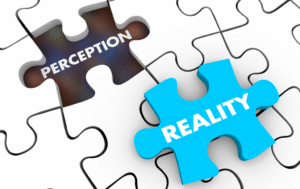The National Retail Federation has retracted an allegation that more than half of the $94.5 billion in lost merchandise in 2021 was stolen by organized retail crime rings.
Large groups of thieves who invade retail outlets and steal items for resale on the black market.
In reality, this form of organized shoplifting accounted for about 5% of total losses.
An initial claim of more than 50% turned out to be about 5%.
Ten times less than their original number.
It’s also about the same amount of organized retail theft that has always existed in America.
The result of this fraudulent number:
- Increased levels of product locked behind barriers
- Legislation across 14 states in response to these claims, with nine states toughening punishments or creating task forces to crack down on the increased levels of theft that do not actually exist
Even worse, the retraction of the initial number was hardly publicized, leaving the impact of the initial report firmly planted in the zeitgeist.
Add to this the proliferation of cameras and the power of social media, and a single instance of organized theft in one town can suddenly become something everyone in America sees and feels.
Add to this the desire of an entire political party to falsely portray the country as overrun with crime, and without much effort, Americans can suddenly feel like their country is increasingly lawless as crime rates are actually dropping precipitously.
Shoplifting, for example, is down 7% from pre-pandemic levels.
Violent crime has dropped 8%.
Property crime fell 6.3% last year to its lowest level since 1961,
Murder plummeted in the United States in 2023 at one of the fastest rates of decline ever recorded.
In fact, every category of major crime except auto theft has declined over the past three years.
America is growing safer by the day.
Yet 92% of Republicans, 78% of independents, and 58% of Democrats believe crime is rising, the Gallup survey shows, even though the vast majority of those survey respondents haven’t experienced crime in any way except through the media.
It’s hard to change perception when so many people benefit from your faulty perception.









